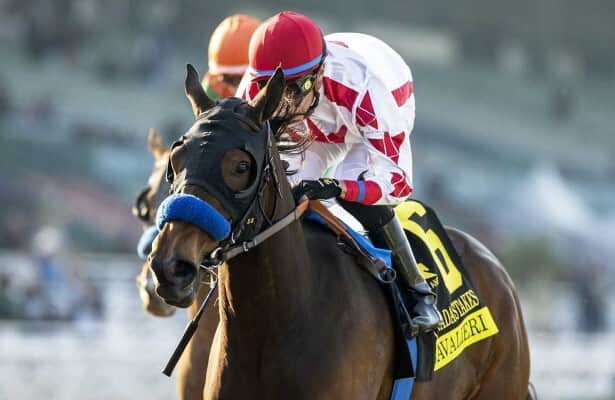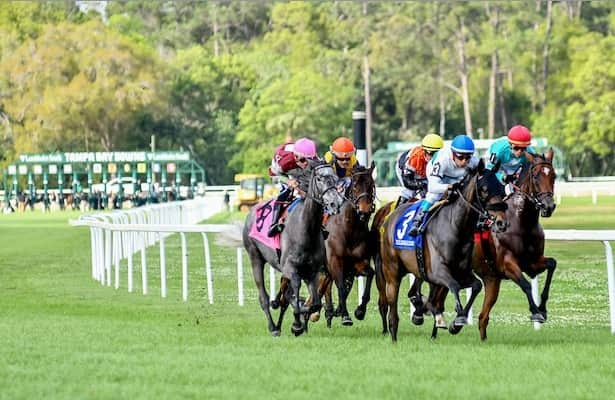Horse Racing Law at Center of Latest Challenge to Agency Judges

A constitutional challenge to the US Department of Agriculture’s adjudication process could be the latest case to chip away at the so-called administrative state, as a federal appeals court hears oral arguments Tuesday.
Joe Manis contends the USDA’s adjudication system violates his Seventh Amendment right to litigate common law claims in an Article III court. It’s the latest challenge to an agency’s use of administrative law judges since the US Supreme Court’s June decision in SEC v. Jarkesy. There, the justices said the SEC’s civil penalties for securities fraud concern private rights that invoke the Seventh Amendment right to a jury trial.
Matthew Wiener, a lecturer at the University of Pennsylvania Carey Law School, said if the Fourth Circuit finds in Manis that the agency adjudication system is “unconstitutional on any of these grounds, [it] will be a significant decision.”
If the Fourth Circuit decides the USDA’s in-house judicial setup is unconstitutional, it could impact not only the Agriculture Department, but other federal agencies and their ability to seek civil penalties for statutory violations.
The USDA alleges that Manis violated the Horse Protection Act when he showed a “sored” horse in a Virginia competition. The statute prohibits horse owners from inflicting pain on the animal’s limbs to enhance their gait for competitions—known as “soring”—and the USDA adjudicates such enforcement actions in-house. Its administrative law judges issue decisions, which can be appealed to a secretary-appointed judicial officer.
Manis filed a complaint in federal court in March asserting the agency’s in-house process violates his constitutional rights and challenging the structure and authority of the agency’s adjudicatory scheme utilizing ALJs and a judicial officer.
He sought a preliminary injunction to stop the agency proceeding while his suit was decided. The district court in April denied Manis’ request, concluding he failed to show a likelihood of success on the merits.
The Jarkesy Question
The Supreme Court’s decision in Jarkesy “decides Manis’s Seventh Amendment and Article III claims,” because the allegation effectively “operates as a common law fraud claim” and seeks punitive civil penalties, Manis argued in a letter brief to the Fourth Circuit. He also asserted that the claim concerns private rights, and should therefore be heard in an Article III court.
But the USDA argued in a response that enforcement actions under the statute “are not common law actions akin to securities fraud” and are in the public interest. The agency also said in its brief to the court that “nothing in the statute requires an intent to deceive.”
The USDA also lowered its financial penalty against Manis to less than $20 to avoid any doubt about Seventh Amendment implications, according to the letter brief.
Gillian Metzger, a law professor at Columbia University Law School, said that the Fourth Circuit likely won’t decide the case implicates the Seventh Amendment given the lowered penalty. But it “is a signal of the extent to which agencies are really uncertain about what Jarkesy means and the kind of impact that decision is already having on administrative enforcement.”
The issue that’s still on the table, Metzger said, is how exactly the Fourth Circuit will read Jarkesy and if it determines that the statutory claim falls within Manis’ private rights. The justices’ ruling on what falls into the public rights category could be read differently, and “it’s unclear whether the court meant to be taking quite as narrow an approach to public rights as the opinion could be read to take.”
Diverging Circuits
The Fourth Circuit will also have to grapple with the question of whether the removal protections for the in-house judges are unconstitutional, a question the Supreme Court dodged in Jarkesy that is already causing disagreement in the circuits. The Tenth and Ninth circuits have said ALJs are constitutional, conflicting with the Fifth Circuit’s 2022 ruling in Jarkesy v. SEC, Wiener said.
The Fifth Circuit’s Jarkesy decision said the SEC’s two-layered removal protections for ALJs interfere with the president’s authority to remove them in violation of Article II. The SEC’s judges—like the USDA’s—can only be removed for good cause, which is established by the Merit Systems Protection Board.
Challenges over agency judge removal protections have cited the Supreme Court’s 2010 ruling in Free Enterprise Fund v. Public Company Accounting Oversight Board, where the high court said the layered protections for PCAOB board members are unconstitutional.
But other circuits have said the protections for ALJs who perform purely adjudicative functions, rather than policymaking or enforcement actions like PCAOB board members, aren’t necessarily unconstitutional under Free Enterprise.
Manis also argues that the USDA’s secretary-appointed judicial officer has enough authority to be classified as a principal officer, therefore, violating Article II. But the secretary “has much more authority to oversee … and to control” the officer, Metzger said, signaling that it likely fits more into the definition of an inferior officer.
If the Fourth Circuit says there’s constitutional issues with the agency’s ALJs or judicial officer, those problems could be remedied by simply stripping the tenure protections or giving the secretary authority to review the judicial officer’s decisions, Wiener said.
But if the appeals court decides the agency’s in-house adjudication system is unconstitutional under the Seventh Amendment or Article III, the USDA may be out of luck, since not all federal agencies can seek civil penalties in an Article III court, Wiener added.
Pacific Legal Foundation and Kakassy Law PLLC represent Manis.
The case is Manis v. USDA, 4th Cir., No. 24-01367, 12/10/24.
Related
Leading Parx jockey Sanchez will serve 7-day suspension
Photo: Jason Moran / Eclipse Sportswire Jockey Mychel Sanchez will serve a seven-day suspension and pay an additional $1,750 in fines
Bill Mott talks about plans for Sovereignty, Just F Y…
Photo: Gulfstream Park / Lauren King Sovereignty, dramatic late-running winner of the Fountain of Youth (G2) March 1, is being pointed
Up-and-coming Cavalieri chases Grade 1 glory in Beholder Mile
Photo: Santa Anita / Benoit Photo Cavalieri and Alpha Bella, who finished one-two in the Grade 3 La Cañada in January at Santa Anita,
4 stakes showcase shipping stars on Tampa Bay undercard
Photo: Gonzalo Anteliz Jr. / Eclipse Sportswire The stars will shine Saturday at Tampa Bay Downs, and not just in the Grade 3 Tampa Ba











